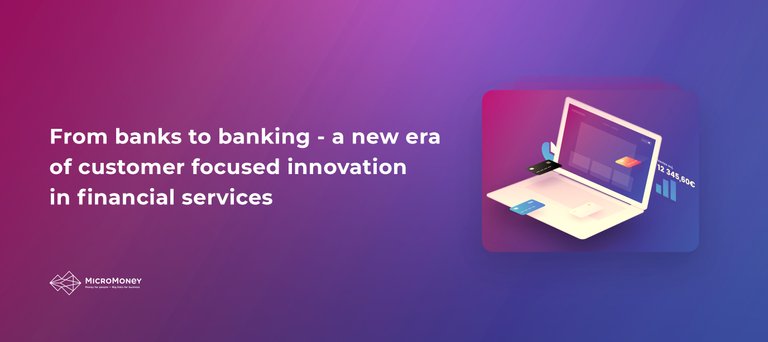By Anton Dziatkovskii — Founder of MicroMoney

Technology-enabled innovations are reshaping every industry, and the financial sector is no exception.
Traditionally cautious banks may now be facing the biggest disruption powered by emerging FinTech companies. These tech-savvy startups leverage the potential of cutting-edge technologies for a more engaging — and personalized — customer experience. MicroMoney, an ambitious FinTech startup, aims to provide global financial inclusion to the unbanked using a sophisticated algorithm for hassle-free loan approval, with no credit history or collateral required.
The use of the Artificial Intelligence (AI) neural network dramatically reduces time and cuts costs of an otherwise expensive credit risk assessment procedure. The AI-driven scoring algorithm analyzes over 10,000 parameters collected through the applicant’s smartphone and uses machine learning to deliver a loan approval decision in 15 seconds. For the 2 billion underbanked people of the world, today it is an opportunity to get their first credit while building a digital financial identity.
But AIis just one of the ways in which FinTech innovates the banking sector and helps financial institutions beat off competition by focusing on a customer-centric approach and a personalized experience. What else has FinTech to offer?
Diversification of cryptocurrencies
Cryptocurrency brings us a step closer to a cashless world of the future, providing a digital alternative to state-issued fiat currencies. In countries with spiraling inflation people turn to Bitcoin to escape devaluation and reap the benefits of a stateless fraud-proof currency that has been gaining in value for years now.
With Bitcoin growing in acceptance, a greater number of cryptocurrencies will be picking up steam this year. According to CoinMarketCap, Ethereum, Ripple, Bitcoin Cash are leading the pack together with Bitcoin, but the cryptocurrency market witnesses an explosive growth. For consumers and investors, it means an opportunity to better diversify their cryptocurrency portfolio in order to balance risk more efficiently. While some cryptocurrencies like Litecoin offer four times faster transaction time, others like Ovato help to earn rewards and loyalty points.
But with so much hype around the crypto market, it still has a lot of maturing to do. Meanwhile, there are a lot of cryptocurrency scams, and users should be cautious as to where they invest their money.
Blockchain
Originally developed to underpin cryptocurrencies, Blockchain has evolved into a powerful technology that can fundamentally transform business transactions across a variety of industries.
Blockchain is a decentralized digital ledger that enables an encrypted, secure way to transfer digital assets. By removing an intermediary from the equation, Blockchain helps build trust between transacting parties while significantly reducing infrastructure costs and cutting the transaction time down to mere seconds.
To stay relevant and better serve their customers, banks are starting to adopt the technology — mainly, for cross-border payments. But the use cases are not limited here. Blockchain lends itself well to clearance and settlements, trade finance, securities, loans and credits, regulatory compliance, including ‘Know Your Customer’(KYC) and anti-money laundering practices.
API-led connectivity
Further support to advancing the customer centricity comes from open banking. The movement is backed by regulations like Payment Services Directive (PSD2) in the EU and the Open Banking Initiative in the UK.
At its core, open banking requires that banks provide access to their data in a secure environment through APIs. The ownership to financial data is returned to the customers who may choose to share this information with approved financial bodies, other than their bank. This will further enable third-party providers to better understand customers’ needs and develop a range of new personalized and customized offerings.
By using third-party applications and services on a plug-and-play basis, banks can gain innovative edge and significantly improve experiences for their tech-savvy customer base while also enjoying new revenue streams. Forward thinking banks recognise that to stay competitive in the changing landscape, they need to collaborate with FinTechs that can bring agility, faster time-to-market, and a frictionless user experience.
Here, at MicroMoney, we understand what a customer-centric experience is. We build our open source platform on Blockchain to ensure safety and transparency that fosters trust among our clients. By collecting vast amounts of data and applying sophisticated analytics tools, we provide actionable insights into the customers’ needs and enable businesses to offer the best service possible.